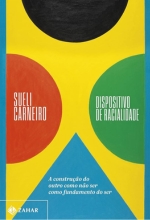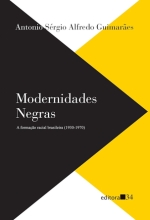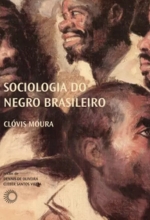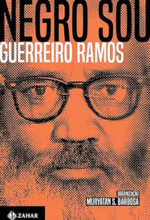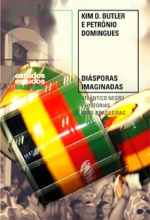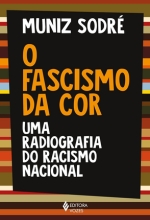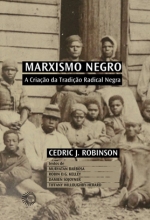Absgract: “History of Artificial Intelligence – 23rd Century” by Michael R. Santos explores the evolution of AI. Despite the aim of making the subject accessible, the book is criticized for its complexity and futuristic approach, which can confuse readers without prior knowledge, limiting its target audience. Keywords: Artificial Intelligence, Computing, Robot. History of Artificial Intelligence […]
Abstract: This dossier of the journal Crítica Historiográfica explores Post-Abolition and Race Relations in Brazil. It brings together critical reviews that address the black experience, racism, and anti-racism. Contributions from various Brazilian universities illuminate themes such as structural racism, whiteness, and historical resistance. The aim is to deepen the understanding of racial complexities in the Americas.
Post-Abolition and Race Relations Read More »
Abstract: Sueli Carneiro’s Dispositivo de Racialidade applies Michel Foucault’s concepts to the phenomenon of Brazilian raciality, exploring epistemicide and state genocide. The book reports on the resistance of black activists, discusses education and ethics, and challenges Eurocentric perspectives while highlighting the fight against systemic racism in Brazil. Keywords: Raciality device, racism, and epistemicide. Sueli Carneiro,
Abstract: Uma história feita por mãos negras: Relações raciais, quilombos e movimentos, organized by Alex Ratts, explores the works of Beatriz Nascimento on race relations and quilombos in Brazil. The work retells Brazilian history through a black perspective, criticizing European theories and highlighting the importance of the black narrative. Keywords: Race Relations, Quilombos, Blacks. The
Abstract: Pacto da Branquitude, by Cida Bento, published in 2022, addresses racial discrimination in Brazil, analyzing white supremacy and its effects. The work stands out for its accessible language and focus on racial and gender equity, and criticizes the system, despite presenting certain information gaps. Keywords: Whiteness, Racial Equity, Racism. Pacto da Branquitude is a
Abstract: Modernidades negras: a formação racial brasileira (1930–1970), by Antônio Sérgio Alfredo Guimarães, analyzes Brazilian racial formation (1930-1970) focusing on black intellectuality and racism in its ideological configuration. The work, criticized for limiting black agency and emphasizing white influences, is seen as partially successful in achieving its objective of reflecting on Brazilian social thought, being
Abstract: The book Tornar-se negro: ou As vicissitudes da identidade do negro brasileiro em ascensão social, by Neusa Santos Souza, based on her master’s research, examines the psychological and social impacts of racism on black people seeking social ascension. Innovative study, points to overcoming supposed racial inferiority and the denial of black identity. Keywords: Racism,
Abstract: Sociologia do Negro Brasileiro, by Clóvis Moura, criticizes “racial democracy” and explores post-abolition black resistance. Initially published in 1988 and republished in 2019, the work is fundamental in the fight against racism, in addition to highlighting the importance of black intellectuals in Brazil. Keywords: Racial Democracy, Black Resistance, Sociology. The first edition of Sociologia
Resumo: Negro sou: a questão étnico-racial e o Brasil – ensaios, artigos e outros textos (1949–1973), organizado por Muryatan S. Barbosa, é uma compilação de textos de Alberto Guerreiro Ramos que explora a questão étnico-racial e o Brasil entre 1949 e 1973. A obra ressalta a contribuição de Guerreiro Ramos nos debates raciais e sociais.
Abstract: Diásporas Imaginadas: Atlântico Negro e Histórias Afro-brasileiras, by Kim D. Butler and Petrônio Domingues, explores the Afro-Brazilian diaspora and experience, aiming to reconstruct and examine aspects of this relationship. Published in 2020, it criticizes essentialist and nationalist approaches, using the diaspora as a theoretical tool to analyze the lives of Afro-Brazilian populations in Afrodiasporic
Abstract: O fascismo da cor: uma radiografia do racismo nacional, by Muniz Sodré, aims to analyze post-abolitionist Brazilian racism. The work is criticized for omitting discussions about religious racism and fascism, in addition to superficially dealing with complex themes, despite being considered useful for social movements and the study of racism. Keywords: Racism, Brazilian Racism,
Abstract: Jesse Souza’s work, Como o racismo criou o Brasil explores the role of racism in the development of Brazilian society, highlighting its effects on social, political, and moral fronts. Souza, an academic writer, provides a perceptive and insightful critique that ignites discussion on racial matters in Brazil. Keywords: Brazilian society creation, racism, and multifaceted racism.
Abstract: The work Marxismo Negro: a criação da tradição radical negra, by Cedric J. Robinson, explores the intersection between Marxism and European radicalism, highlighting the black radical tradition. Criticism point to Marxist reductionism and a etpist view of black intellectual evolution. Nevertheless, it is essential for ethnic-racial studies, indicating reading for black community and adherents
Abstract: The work Marxismo Negro: a criação da tradição radical negra, by Cedric J. Robinson, explores the intersection between Marxism and European radicalism, highlighting the black radical tradition. Criticism point to Marxist reductionism and a etpist view of black intellectual evolution. Nevertheless, it is essential for ethnic-racial studies, indicating reading for black community and adherents


